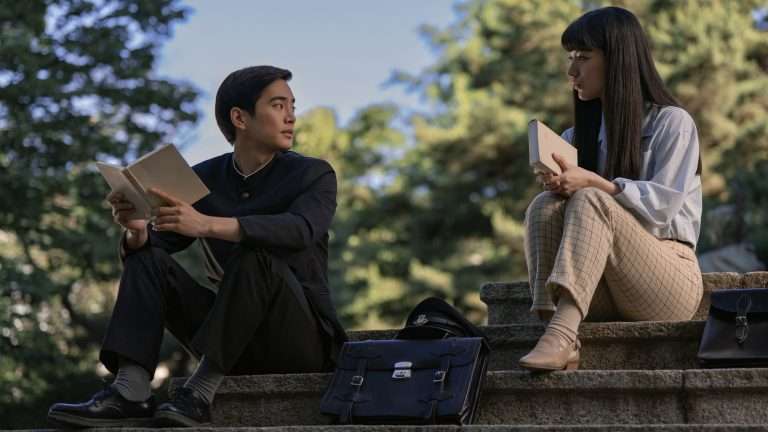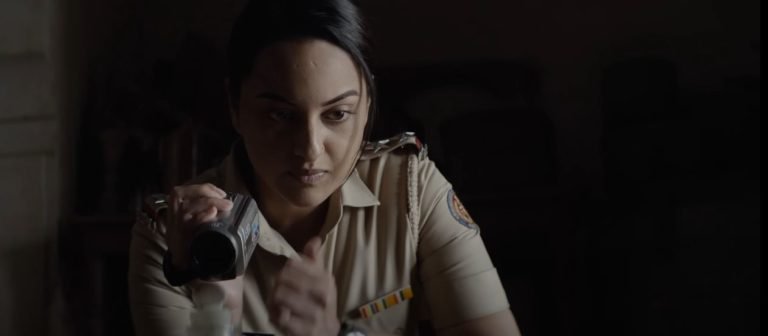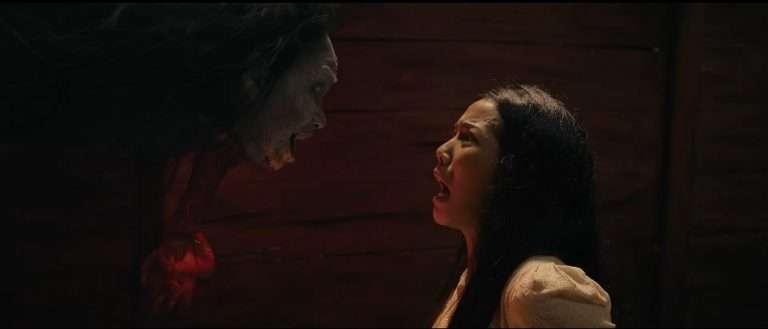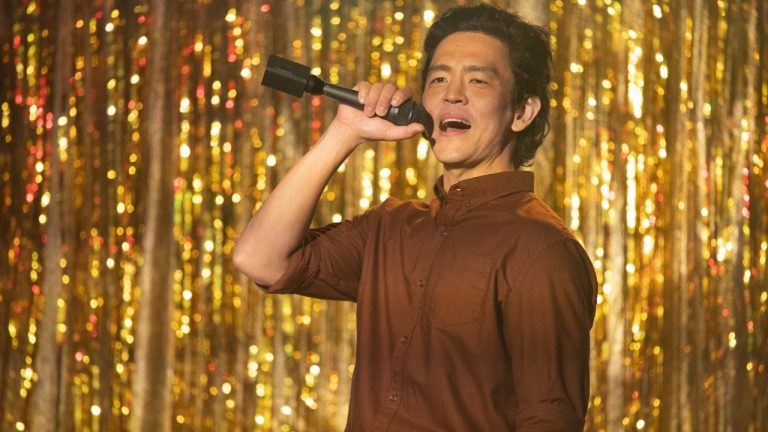One of the most empathetic filmmakers of the past three decades, Nuri Bilge Ceylan, is known not just for the scintillating conversations he can craft out of the mundanity of his characters but also for creating those thematic underpinnings as a response to the empty vastness of the districts in Turkey, eastern Anatolia, and all the other regions he sets his stories in. For Ceylan, every character he crafts as a protagonist feels like an extension of his soul, and if one goes through his filmography, each protagonist feels like a three-dimensional one with dilemmas occurring as part of the fabric of the character. For “The Wild Pear Tree,” it’s the confusion of youth; for “About Dry Grasses” (2023), it’s a re-establishment of beliefs for a self-absorbent man, leading to the creation of a narcissist.
About Dry Grasses (2023) Plot Summary & Movie Synopsis:
Who is Samet, and what is his relationship with the rest of the inhabitants of his school?
The movie opens with a van stopping by at a snowy, remote location, and a balding man disembarks from the car, shivering, and starts walking through the feet of snow, which slowly increases as the wind picks up. This is Samet (Deniz Celiloglu), a state teacher teaching art in a remote village in Eastern Anatolia. He shares lodgings with his colleague, a history teacher at the same school by the name of Kenan (Musab Ekici). His relationship with the people at the village is tinged with familiarity and exhaustion—at once familiar with the striations of the place and the people, but also tired enough that his mandatory posting of 4 years ending couldn’t come fast enough. He wants to get out of this place and move to Istanbul.
There is an air of arrogance about Samet in how he converses with his fellow teachers in the staff room and how much he can’t stand the “local food.” He has a favorite student among the eighth graders by the name of Sevim (Ece Bagci). In the early scene where the teacher and the student first interact, we see him looping his arm around her waist after having gifted her a mirror.
This could be read in several ways, and this is one of the numerous ways in which Ceylan prepares us for the inevitable inciting incident that is about to follow. Because even though we have an inkling of what might happen, the act of looping itself has so many adverse connotations. You couple that with the fact that Samet shows enough favoritism to ask questions only to Sevim and her friends and is prone to blowing up in a temper when questioned about it—the cracks in the somewhat nice exterior of this art teacher already begin to fall apart.
The new wrinkle comes into Samet’s life when he is advised by the head of the army stationed there (with whom he shares enough of a cordial relationship that they play video games together at the colonel’s office) to meet a girl and get married. He refuses the colonel’s advice because he is already slated to meet Nuray (Merve Dizdar), an English teacher at Inescu, a larger school than the one Samet teaches at. Nuray has also lost a leg during a terrorist event, and one can argue that crafting a female character with a disability and gifting her with strength and poise feels like an automated hack in screenplay writing.
But, like Samet, you don’t notice these things, though as a viewer, you are more drawn into the world of Samet, as the perspective is very much focused on him, and we realize that he is very dismissive of this match-up in the first place, to the extent that he, later on, wants Kenan to hang around with her. With marital status occupying such an important pedestal in the societal lexicon, it would alleviate the worries of Kenan’s mother while leaving Samet free to take still photographs. There is an inherent curiosity in Samet about the community he finds himself in, but there is also an acknowledgment within him that he is lazy. He can’t be too bothered to explore the community beyond staying at a distance, admiring from afar while dreaming of a better life in “Istanbul.”
What is Samet being accused of, and why?
However, his dreams would be shattered. A random check at Samet’s class leads to Sevim’s schoolbag being searched, and a love letter is discovered. While it isn’t explicitly stated (the female teacher hides the love letter in her pocket so as to spare the child further embarrassment), it is clear that the proclamation was for Samet. Samet, on his part, admonishes the female teachers in the staff room for making fun of the love letter, and when Sevim comes to him to ask for the letter back, he gently and then firmly refutes her, stating that he has torn the letter up. As he leaves for the day with Kenan, a glance at Sevim reveals the face of a woman scorned.
As it turns out, both Kenan and Samet are called to meet with the education director, where they learn that they are being accused of conducting inappropriate behavior with the students. Both Kenan and Samet try their hardest to learn about the identities of the students, but the bureaucracy is built in a fashion that protects the identities of the students who have come forward. However, these accusations rattle both of them, especially Kenan, because, unlike Samet, his association with the village goes back longer, and thus his sense of responsibility feels threatened by that accusation.
Upon returning to the school, they confront the principal, whereby all their frustrations regarding Bekir and the fact that he had been selected to be the principal of this school rather than one of the staff members who had been in the school for over seven years spill out. Bekir tries to backtrack, stating that he has been following the rules, but neither Samet nor Kenan completely buys into the argument. It is only when the two of them are having a drink with their friend Tolga that night Tolga reveals that Sevim and Aylin have complained about them.
It is fascinating to witness how Samet chooses to react upon comprehending this information. Of course, he doesn’t directly ask Sevim and any of her friends, but instead, he starts teaching the kids about perspective and how teaching these “potato farmers” is a fool’s errand when they would only be at the service of the rich, rather than having the bandwidth of being artists anyway. The unfurling of Samet’s character, revealing the rot of selfishness that had already been present within him, is what interests Ceylan in “About Dry Grasses.” Despite the inciting incident, the movie takes that incident in stride, choosing instead to show the unraveling of the character and his increasing self-absorption.
Why was Samet interested in Nurray?
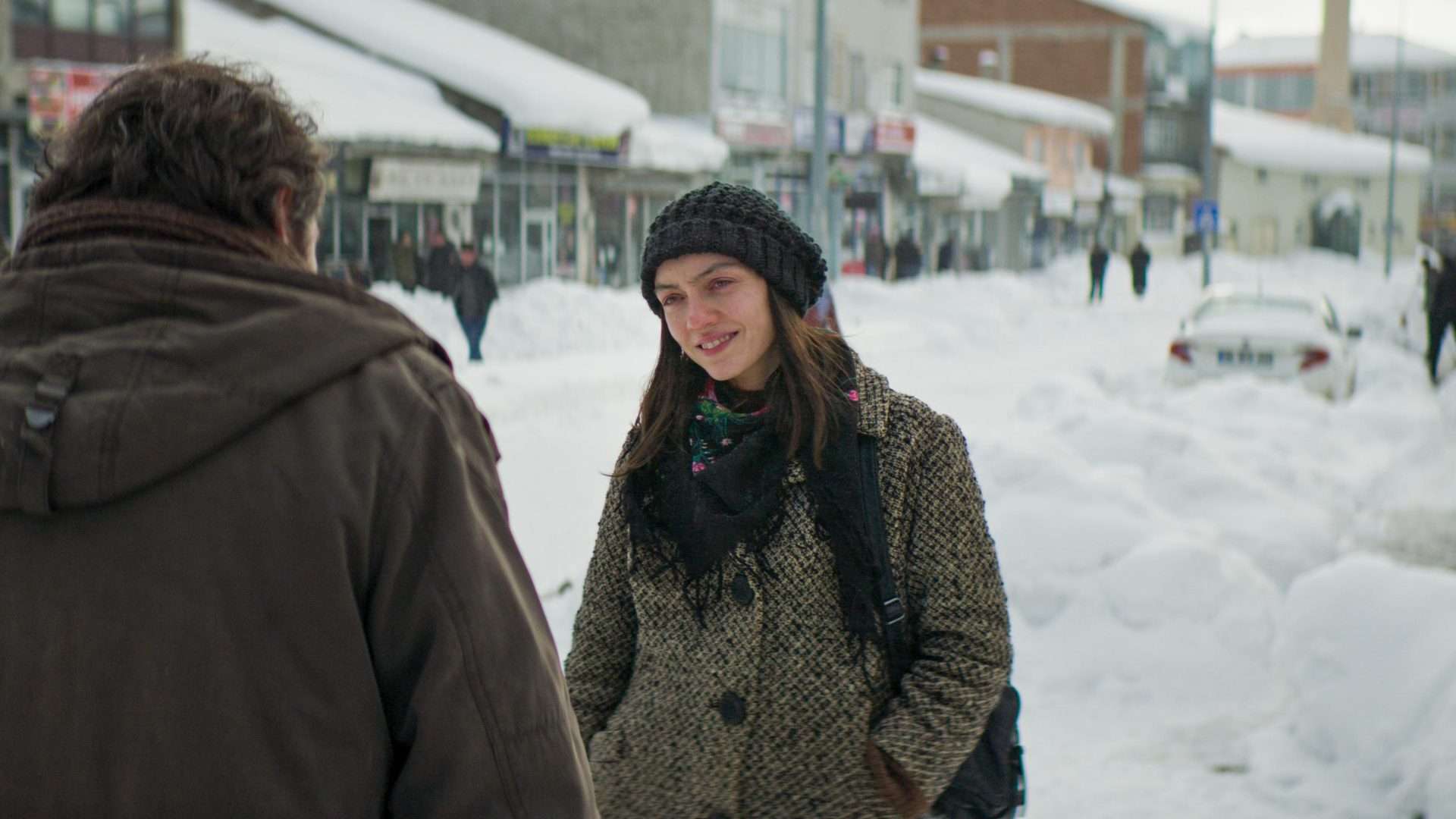
Samet is a textbook character of self-absorption who has become used to criticism and inaction. One could argue that he felt himself to be too good for Nuray when he realized that she had such a severe disability. However, on the second date, where he had actually wanted to saddle Nuray onto Kenan like a piece of luggage, he suddenly realized that Nuray and Kenan had a lot more in common than he had anticipated.
Nuray’s devotion to her parents and her hesitance in leaving this town for Istanbul are sentiments very much shared by Kenan, as is their love for traveling, which compounds Nuray’s interest in Kenan when Kenan almost sloppily asks her out without technically asking her directly, instead choosing the excuse of teaching her to drive. This renewed interest in Kenan by Nuray almost naturally doesn’t sit right with Samet. Nuray also represents Istanbul, the ultimate nirvana for Samet and his ticket to freedom.
The camera remains in the static shot of the table at the cafe, and while we see Kenan and Nuray interact, we are also witnessing Samet’s visible discomfort and his trying to break that comforting silence. The next time they go out on a trip to a mountainous village and have a cup of tea, Samet tries hard to cozy up to Nuray. Nuray, within that time, has grown closer to the two of them, such that she would accompany them on trips and also provide details on how she had lost her leg as well as the difference in prosthesis.
But even within those conversations, Samet tries to paint himself off as intellectually dismissive while also laughing against Kenan’s point of view that people in this village have radical political beliefs. There is again a re-establishment by Samet, trying to paint himself as far more intelligent than his narrow-minded vision allows him to be. At the end of the day, it is a man having a competition to win against the affection of a woman he is only interested in obtaining. To the extent that he is okay with Tolga’s rationalizations that Sevim and Aylan’s accusations towards the two of them had been directed more towards Kenan, with Samet just being caught in the crossfire.
About Dry Grasses (2023) Movie Themes Explained:
What happens when limited knowledge is mistaken for omniscience?
There is a recurring subplot about Fayyaz and his employer, Veterniner Vahit, with whom Samet shares an easy-growing friendship. Samet had even lent Fayyaz money, not expecting anything in return. But Samet also acts like a passive viewer, revealing his privilege in not taking a side of the political spectrum. We see Samet being close to the army but also close to the guerrilla side of the equation. Even as Vahit tries to point out how Fayyaz’s rebellion and guerrilla life are useless in a world where nothing is demarcated anymore, we see Samet trying to diffuse the tension by advising Vahit about how to redecorate the office.
But Vahit’s advice to Fayyaz about continuously talking about ideals devolving into platitudes and not taking the basic action to shut a person badmouthing is also the film indirectly pointing out the hypocrisy in the inaction of Samet. The streak of narcissism within Samet is so strong that limited knowledge becomes tantamount to omniscience for him, but there is also a sense of inaction. Samet is a man who would complain about the problems of the world, but also the person appearing first in line to congratulate someone when they had solved it, rather than lifting a solitary finger.
It’s with this same tenor that the centerpiece of the last hour of this movie rests, when Samet, finally realizing that he would have to act fast, meets with Nuray and manages to block Kenan out of a dinner meeting that Nuray had invited both of them to. It’s this last hour where Nuray basically “undresses” Samet mentally, forcing him to battle opinions with wits. Nuray is fiercely left-wing, while Samet is centrist or opportunist wherever the wind blows. There is a formidable intellect within Nuray, evidently capable enough to make Samet’s opinions wobble under the shakiness of his selfishness and self-absorption and to point out the unfair stigmatization of Samet against the people of action when he, by his nature, is a person of inaction.
And every opinion of Samet, like “being alone within that noise” or “how human is it to oppose and to feel bored,” is different from other Ceylan protagonists. This is not a man armed with knowledge but unable to crystallize within to produce a personality to exist. This is a man whose personality has become so ingrained within himself that it is almost impossible to change, and the dangerous nature of such individuals is their propensity to love the sound of their voice and to have a partner who will listen to their opinions passively and clap in acceptance.
Moreover, this is a man who would academically be able to differentiate between “opinions” and “obsessions” but would be light-footed enough to put his foot in any of the boats. That’s the key difference between Fayyaz and Samet as well. Fayyaz is trapped because he believes in his ideology so much that he is unable to look into the forest for the trees, calm himself down, and look for the bigger picture. Samet is trapped because he believes himself above such “pettiness” and that somehow education allows him the power to induce change in the community, but he does not realize that for induction, empathizing with the community is essential.
But “About Dry Grasses” also acknowledges the “weariness of hope” within Nuray, who, because of her disability, feels stricken down by the severely patriarchal society that she has herself moved on from, but the societal norms still pull her in. There is a sense that even when the conversation ends and shifts to the sofa with Samet and Nuray sharing a bottle of wine, it is more of a resignation for Nuray than any attraction.
This rat-a-tat of conversation is perhaps fodder for a woman starved of such. She knows that Samet had intentionally shut Kenan out so that he could get a chance to spend time with her. But her weariness feels lengthened, also because of the feeling of being trapped. So, for her, Samet is the temporary comfort she can take, but that doesn’t mean she can’t have control. Thus, she chooses to put the lights out and orders him to shut the lights out in the living room.
What does that fourth wall break actually mean?
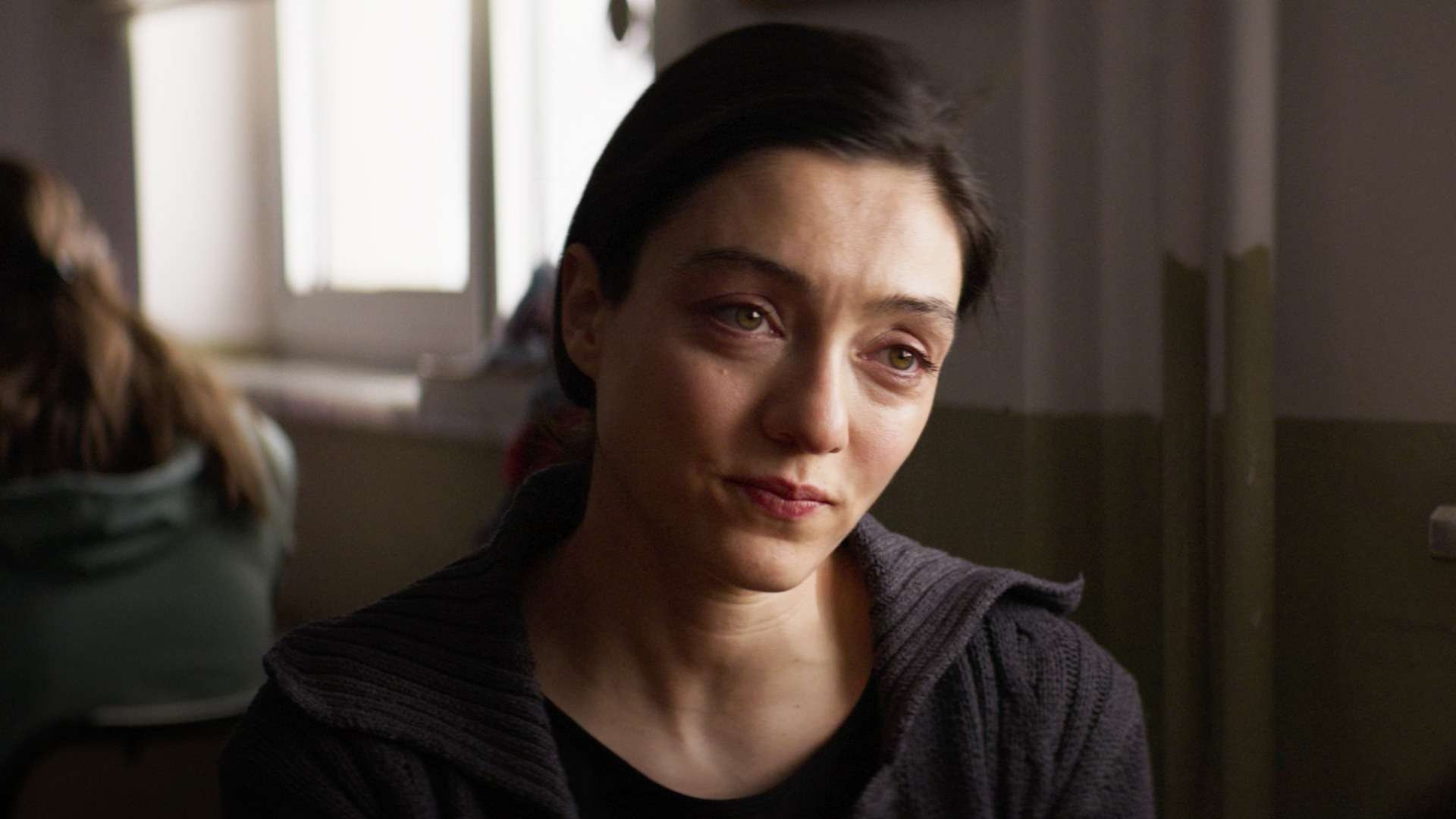
The most surprising scene amidst this three-hour conversational dram occurs when Samet walks out to switch off the lights, but we see him walking off the soundstage, breaking the illusion and “realism” and revealing the sets of the film, as he walks into a constructed bathroom, washes his face, fixes his hair, and then walks back inside the soundstage, towards the darkened room, where we see Nuray having opened up her prosthetic and now lying in bed, almost waiting for him with resignation.
The fourth wall break could be interpreted in different ways. On the one hand, it’s a choice that complements the filmmaking style of Ceylan in this movie, a mild departure from his previous work. Unlike “The Wild Pear Tree,” which favored long takes and long static shots, letting the conversation flow as interminably as possible, there is a prevalence of sharper cuts here, the use of static images overlaying the diegetic sound at times, and even during the conversation at the dinner table, a forced perspective on Nuray’s face, almost rendering it hypnotic. It’s Ceylan balancing the tenets of realism with the artifice of filmmaking and thus acting upon that artifice and the effect it has on the narrative.
On the other hand, the fourth wall break is not an extensive one like “The Souvenir: Part 2″ or “The Human Voice.” Considering that the camera doesn’t break the hold on its protagonist nor lets the actor break character even as the illusion of reality is broken, it could be taken as Samet’s self-absorption having reached an unhealthy point of narcissism, such that he imagines himself to be the hero of his movie, and he has finally attained his prize. This fourth wall break is Ceylan highlighting the mindscape of Samet.
The final interpretation, if it could be called that, feels more like a distraction from the narrative, almost acting as a break from the scenographic progression. It works in ensuring Ceylan indirectly has a deeper level of engagement with his audience, such that the philosophical discussion does not become one to be admired for their wordplay and their sharp observations, but rather be digested and ruminated upon by the viewers, allowing them to truly understand Samet for the flawed and intensely privileged outlook he possesses as a human being.
How does the resolution between the trio ultimately occur?
We know already that Nuray is an intelligent individual who can play on the insecurities and fallibilities of humanity. Thus, while enjoying and even accepting Samet’s mansplaining about her prosthesis, she asks him to refrain from mentioning the events of the previous night. But because Samet had always taken this as a culmination of the competitiveness between Kenan and himself over Nuray, he couldn’t resist indirectly gloating to Kenan about this moment. And Kenan, the full-blooded, insecure male that he is, feels betrayed even though at no point did Nuray ever clarify any intentions about taking any sort of step towards deepening their relationship.
There might have been pregnant pauses and moments of genuine attraction between Kenan and Nuray, but they had never ultimately resolved into anything, nor had she given any hints or expectations regarding those. Perhaps that is why her appearance at Kenan’s cottage in the evening comes as a shock for the two men, but it had been ultimately expected by her. When she realizes that Kenan isn’t replying to her messages, she decides to confront the two of them and ultimately point out the perils of assumption. The one intelligent thing her character also does is not allow any hints of a continuation between her and Samet.
Perhaps that is why when the snow finally begins to truly come down, she comes back to the cottage after having stormed back out. She had realized that even if she had driven herself to the cottage, the snow was too much for her to drive back alone. Thus, Kenan and Samet accompany her, and in a subtle way, Ceylan shows the reformation of the trio, however flawed all the characters might be.
About Dry Grasses (2023) Movie Ending Explained:
The movie ends as it usually happens with Ceylan’s films, with a seasonal progression. The snow slowly thaws and melts, but as Samet’s voiceover says, it is normal because, in this forgotten corner of the world, there are only two seasons: winter and summer. Long stretches of snow covering and burying the dry grasses, and summer with the grasses becoming yellow-green rather than having the chance to become green as spring would beckon.
It is the last day of school, and many days after the trouble with Sevim, Samet has chosen to comb his hair. As he enters the school and begins clearing out the storeroom-like office, he is met by Sevim again, this time wearing a summer dress. Samet, as an adult capable of holding grudges, can afford to be unkind and sarcastic to Sevim, but how effective would that be if those hurtful barbs didn’t actually affect the girl?
How effective is the query for an honest answer or a confession of an accusation from a child when the child, as it turns out, doesn’t know any better? Her anger at her emotions being trifled had gotten the better of her, but within the child, a weariness had descended upon her. She can’t comprehend his bitterness or sarcasm, perhaps only seeking acknowledgment from her favorite professor over the cookie cake she had made.
Samet, Kenan, and Nuray explore the ruins of ancient civilization, markers of an era long gone, but like dry grasses, these markers will remain buried under the snow in the winter. Unfortunately, Semat would still be searching for the greenery of the spring. It is telling that the image of Sevim in his head is the one where her hair is sprinkled with snow, the marker of innocence. It is almost uneasy to hear that what he has been looking for in Sevim is an energy he can’t find in himself, a form of transcendence.
Even within the monologue intended to be a wrap-up for the movie or for the time being spent by Samet here, this is a character so wrapped up in his own narcissism that he couldn’t look beyond his wants and desires to mold the girl in his own image rather than allowing the girl to discover herself. There is beauty in these dry grasses, but only if he chooses to look at them instead of searching beyond them. Ceylan, in his ruminating, meditative manner, crafts a film where we witness a character stubbornly choosing not to change, which becomes a study of narcissism. If the voiceover sounds like forceful profundity, increasing a sense of self-importance, that is because it absolutely is. Samet remains true to himself, and the horror stems not from what those accusations implied but from the unchanging nature of man.






